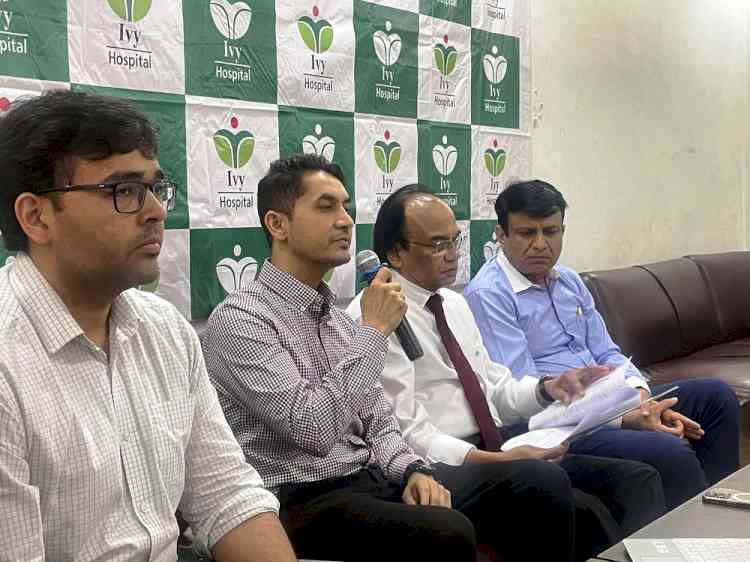Book on “Combating Social Exclusion: Intersectionalities of Caste, Class, Gender and Regions” released

Chandigarh, December 5, 2019: A book on “Combating Social Exclusion: Intersectionalities of Caste, Class, Gender and Regions” by Dr.Rajesh Kumar Chander, Chairperson, Department cum Centre for Women’s Studies & Department, Panjab University, Chandigarh was released by Prof.Raj Kumar, Vice-Chancellor here today.
He pondered upon the importance of study of social exclusion in the realm of research and policy making and implementation. He also reiterated the importance of research publication in the domain of social exclusion, specifically, and generally, in academics. He also discussed the integrated model of research in the Universities abroad.
Dr. Rajesh Kumar Chander, in his remarks about the book, extrapolated on the multiple exclusions, gave a brief introduction to his well-researched book, which was based on the data collected from rural hinterland in Punjab and as well in U.K. The positive aspects of social inclusiveness witnessed was the international emigration of dalits from Punjab from Doaba region, as a result, the dalit diaspora has emerged, but it has mostly been confined to men only. A few dalit castes have also taken to education in a big way, and have got empowered. Invoking Dr. Ambedkar’s ideas, Dalits are witnessing more political inclusion than socio-economic inclusion. Dalits are also asserting their identity, primarily, Ad-dharmis through Panchayati raj Institutions (PRIs) and parallel places of assertion, like, visiting Deras, etc. He further lamented that there are few grey areas still remaining, where more work is required, i.e., women still remain excluded from the various spheres, especially, women from the Most Depressed castes. The separate cremation grounds, religious places of worship, residential segregation is also a major area of concern. The intersectionalities of caste, gender, class and region needs to be taken into account to have a multi-pronged policy from a bottom-up perspective.
Dr. Raja Sekhar Vundru, Principal Secretary, Government of Haryana praised the book for its lucidity and extensiveness of the research, he elaborated further that the tools of data collection through case studies was very comprehensive. The work provided a snapshot of the dalit reality and will act as an inspiration for future researchers.
Prof. Ronki Ram, Dean, Faculty of Arts discussed the basic contours of the caste system as a notion and how it differs in Punjab from rest of India. He explained the residential segregation in rural Punjab is a basic attribute of the caste system. He also discussed the role of intelligentsia, civil servants, and elites in eradicating the caste system.
Prof. Rajesh Gill emphasised the need to become more sensitive human beings and discussed that female-headed households in the light of the dalit women in Punjab. As the Female headed households may not be a sign of empowerment. She also elaborated on the application of concept of feminization of poverty in the understanding of society of Punjab.
The book release was attended by Deans, Chairpersons, Fellows, Teachers and other faculty from across the disciplines.

 cityairnews
cityairnews 
















